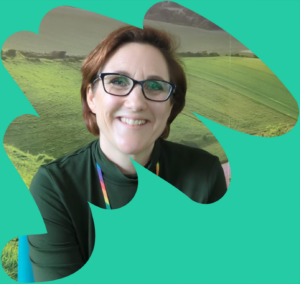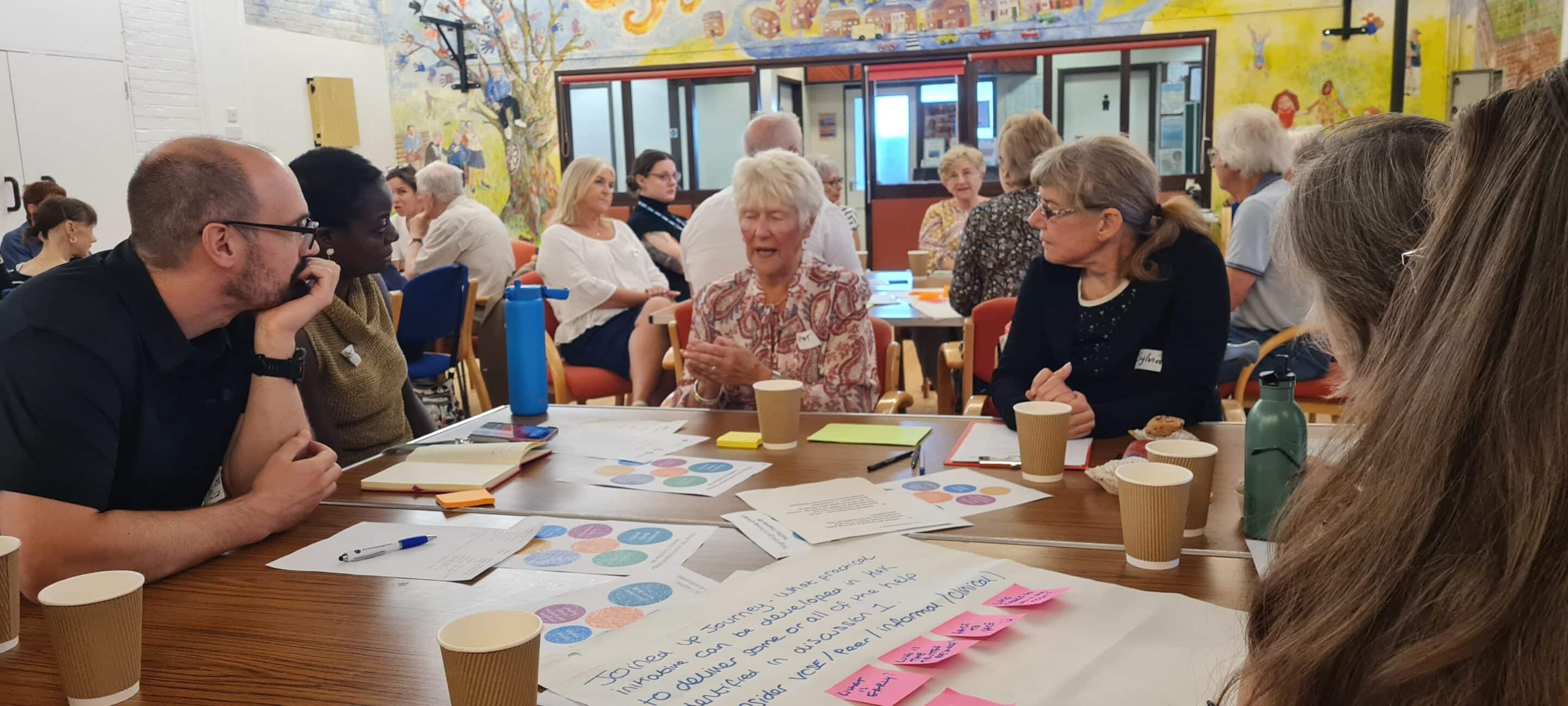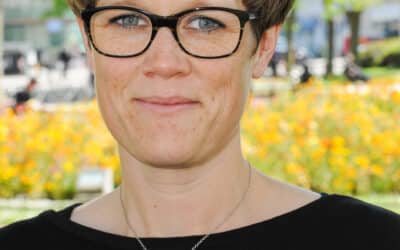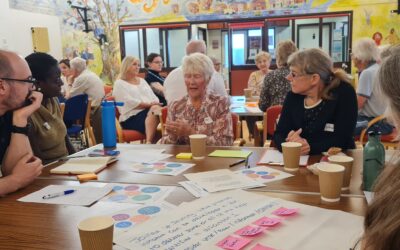Rethinking Our Health: Why it matters

Our CEO explores why rethinking health matters now more than ever and how community-powered approaches can reshape the future of healthcare.
The moment that sparked a quiet revolution
In the summer of 2022, we were deeply inspired by a document from New Local – A Community-Powered NHS co-authored by Adam Lent, Grace Pollard and Jessica Studdert. The principles of community powered health were a clarion call for Here, triggering a quiet revolution in how we delivered our services.
A series of conversations in our clinical teams led to a series of startling innovations across our services, that New Local helped us to take to a wider audience. Our Community Appointment Days approach pioneered in the spring of 2023 is now unquestionably one of our most impactful innovations in delivering healthcare services. More than 120 providers across the UK have now engaged with Community Appointment Days – either adopting the model or actively exploring how to replicate it, changing our expectations of where and how healthcare should be delivered. So, when Adam says what he has written now is the most important thing since then, it’s time for us to take a look.
A healthcare approach based on traditional telling, doing, treating needs a radical rethink
Doing with, not doing to
Doing With: Reinventing Public Services In A Time Of Crisis | The King’s Fund speaks clearly to the challenge of our time – and today we are already in lock step with the approach outlined. Since the earliest days of our services for people with long term conditions we have built in patient leadership. Our staff now known as ‘Health Builders’ are a critical part of our infrastructure – people with lived experience who design and deliver services with the community, enabling the ‘do with’ approach that is so critical to our wider public service reform.
Why healthcare needs a rethink
Nowhere is this more critical than in healthcare. Given 80% of the determinants of health are not related to access to healthcare, a healthcare approach based on traditional telling, doing, treating needs a radical rethink – particularly when it comes to the upstream shift to prevention set out in the ten-year plan. Now, compared to when the NHS was founded, 65% of NHS spending is on long term health conditions.

From treatment to management
What this means is the treatment paradigm needs to shift. For at least 65% of the time, we need to be focused on and enabling ‘management’ over treatment. That means a deep collaboration – led by the citizen, to understand how they want to manage their health condition and integrate this management approach into their daily life, to make sure they have the life that matters to them.
The language of healthcare: time for a rewrite
This frame does not feel shocking to me, and yet the implicit rules that underpin how we deliver healthcare suggest that this approach will be deeply radical. Nowhere is this more present than in the language we use to describe healthcare interactions. We ‘consult, prescribe, treat, review, discharge’. Patients ‘wait, present, comply, disengage or DNA’. We talk in acronyms and euphemisms, about CVD, COPD, CVA, about activation levels, health literacy, risk factors and the ‘hard to reach’.
We treat episodically, with little view of the whole person or their whole lifespan.
Listening with curiosity, humility, and a willingness to let go of assumptions is a radical act, one that can unlock different outcomes.
From patient to person
We ask if they are taking their prescribed medication daily, not if they are walking, talking to others, living in a place they can call home with good work, good friends and a good life.
Only rarely do we connect as humans, acknowledge what matters most, and work together to enable it to happen. Joy, connection, quality of life do not show up in our lists of key performance indicators or our measures of productivity.
Listening is a radical act
Part of what gets in the way is the rigorous training, expertise and experience that sits in the hands of our health professionals. With so much hard-won knowledge and skill, it is challenging to adopt a listening approach, to acknowledge that what we care so passionately about may be of secondary importance to the patient in the room.
Listening with curiosity, humility, and a willingness to let go of assumptions is a radical act, one that can unlock different outcomes.
Charting a new course, Rethinking Our Health project
We know a different approach can work. In the pockets around the country that Adam highlights, new types of conversations are happening, and communities are uniting with new purpose. We’re excited to be exploring how to ‘rethink our health’ in a project at Here. We hope to both design and test new ways of connecting healthcare to communities – to map how healthcare services best ‘dock’ to places and the people they serve is our primary focus.
Alongside this, we want to track how change happens, what makes it possible and sustainable, and to share our learning as widely as we can.
We’re still early in this journey, but we believe this is where the most important work lies, and we’re not alone.
If you’re rethinking health too, we’d love to connect.
We’ll be sharing our learning as the project develops – publishing regular reflections on what works and what doesn’t.
Sign up to updates direct to your inbox
Also of interest
Early Pain Support: Insights From our first Community Drop-In
As part of Rethinking Our Health, we hosted our first community pain drop-in — a chance for people to talk things through early, get reassurance, and feel more confident about managing pain. This blog shares what we learned, and why having the right conversation at the right time really matters.
Rethinking Our Health: starting with pain
We’ve been asking communities what really matters when they’re living with pain. In this update, we share what we heard, what surprised us, and how this learning is shaping a new three-part support offer for MSK pain that starts locally, builds on existing strengths, and is designed together.
Rethinking Pain: Insights from The Kings Fund and Here
What if pain wasn’t just something to manage, but a signal for change? The Kings Fund and Here explore how a “do with” approach can transform pain services – focusing on prevention, connection, and holistic support.


